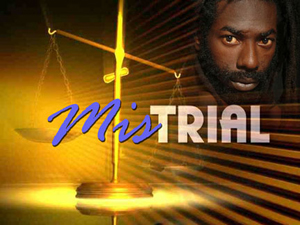Juror misconduct in reggae giant’s case?
By Richard B. Muhammad -Editor- | Last updated: Dec 28, 2012 - 11:50:31 AMWhat's your opinion on this article?

|
Atty. Lumumba, who took over the case in recent months, appealed to a judge for a new trial Dec. 20 charging juror misconduct. A juror did outside research during Buju’s trial in violation of court rules, says the longtime Mississippi attorney-activist. The juror’s alleged actions were chronicled in an October newspaper article. Ex-juror Terry Wright now denies doing such research, but a recording of the interview clearly captures her saying otherwise, says Lumumba.

|
Even if the juror kept her views to herself, Lumumba says, outside research could have impacted her understanding and view of the law or his client. It takes 12 jurors to get a conviction so a juror compromising her own understanding is important—not to mention possibly contaminating other jurors.
Lumumba says an e-mail from Wright to the reporter saying the article was incorrect came weeks after publication and the same day he filed an appeal charging juror misconduct. Either she was monitoring the docket or someone from the prosecutor’s office alerted her, Lumumba says.
Alexander Johnson, a paid DEA informant and drug dealer, earned $50,000 for bringing Buju in. Johnson had a "chance" meeting with the singer on an international flight and the drug case began. Over his career, the DEA paid coke dealer Johnson over $3 million. The 2009 flight led to a hung jury in a first Florida trial. Federal prosecutors took a second shot and Buju was found guilty in June 2011. The charges included conspiracy to possess with the intent to distribute cocaine, possession of a firearm and furtherance of a drug trafficking offense and using a telephone to facilitate a drug trafficking offense. He was sentenced to 10 years. Supporters say Buju wasn’t at the location when money was brought to buy drugs, and had no history of drug trafficking or convictions. One DEA agent admitted at trial that Buju didn’t provide $150,000 a friend showed up with to pay for the drugs and didn’t benefit from the sale. Supporters say Buju avoided the DEA informant once it became evident talk of drug deals wasn’t drunken bravado but actually a plan.
During the recent hearing, the judge also heard from one of three random jurors he chose to question. An older White woman testified to hearing a conversation between two White male jurors and a different female juror, who had researched a rule, which deals with whether or not someone can face a gun charge in case where that person actually does not possess a weapon.
Lumumba says it is impossible to know what jurors learned in the prohibited research—and whether points of law were rightly understood or anti-gay charges hurled at Buju impacted jurors. "We really don’t know all of what she researched," he says.
This appeal is critical, Lumumba adds. If denied another appeal is likely; if granted an appeal is likely from prosecutors. For more information about the case visit www.thisisbujubanton.wordpress.com.
Government informants don’t usually travel first class for no reason and, if anything, Buju was approached about selling drugs, stresses Lumumba. Nothing shows Buju had any predisposition to buy or sell drugs, he adds. "Wherever there is entrapment and trying to arrange entrapment there is always the danger of fabrication," says Lumumba.
Final Call editor-in-chief Richard B. Muhammad can be reached at editor@ finalcall.com. You can also follow him on Facebook and @RMfinalcall on Twitter.
INSIDE STORIES AND REVIEWS
-
-
About Harriett ... and the Negro Hollywood Road Show
By Rabiah Muhammad, Guest Columnist » Full Story -
Skepticism greets Jay-Z, NFL talk of inspiring change
By Bryan 18X Crawford and Richard B. Muhammad The Final Call Newspaper @TheFinalCall » Full Story -
The painful problem of Black girls and suicide
By Charlene Muhammad -National Correspondent- » Full Story -
Exploitation of Innocence - Report: Perceptions, policies hurting Black girls
By Charlene Muhammad -National Correspondent- » Full Story -
Big Ballin: Big ideas fuel a father’s Big Baller Brand and brash business sense
By Bryan Crawford -Contributing Writer- » Full Story






 Click Here Stay Connected!
Click Here Stay Connected!








